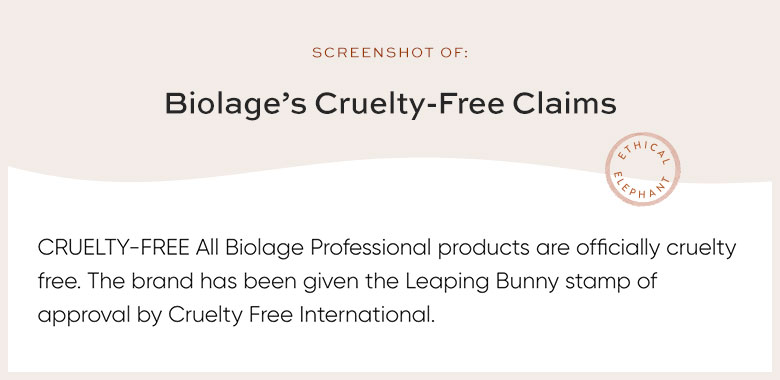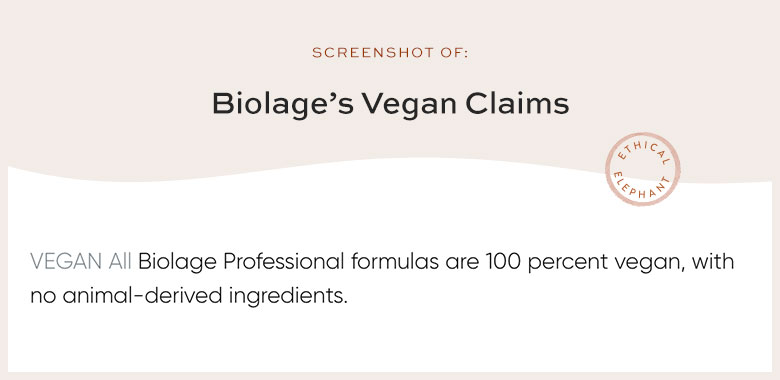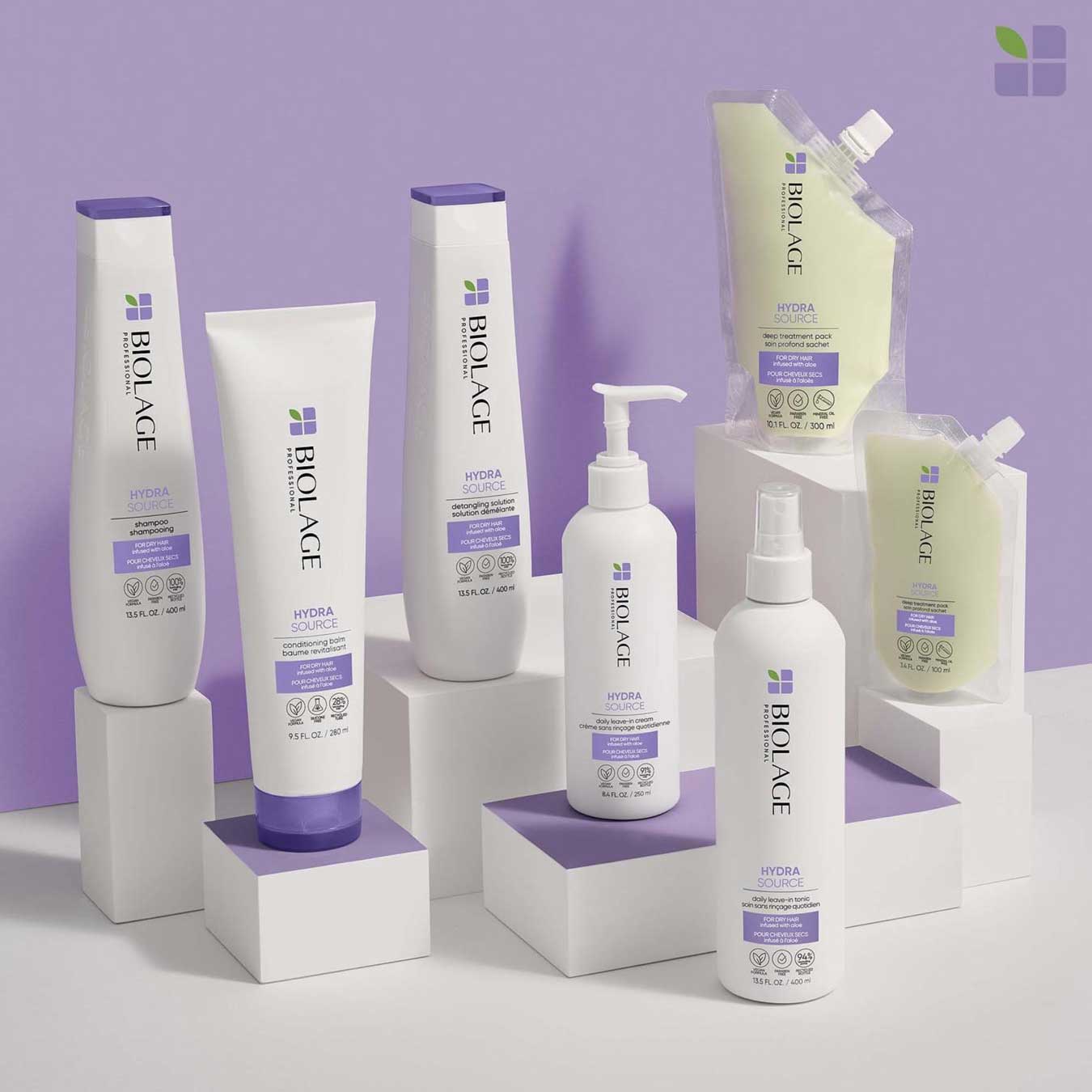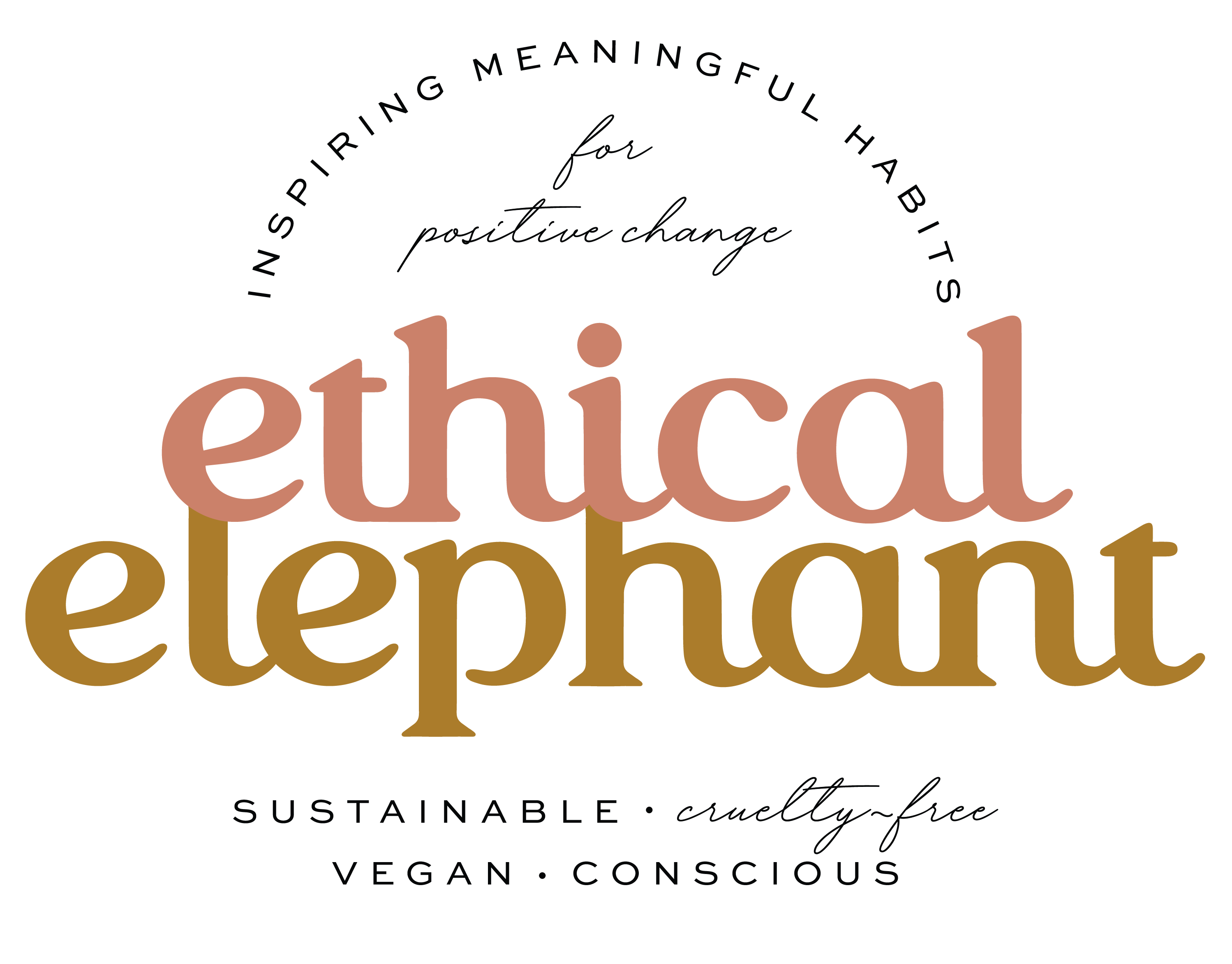This post may contain affiliate links that at no additional cost to you, I may earn a small commission.
Is Biolage Cruelty-Free?
🐰 Biolage is a *cruelty-free brand. None of Biolage’s ingredients or products are tested on animals. Biolage has met all the criteria in our Cruelty-Free Checklist and is included in our Cruelty-Free Directory.
Does Biolage Test on Animals?
When asking, does Biolage test on animals? We must look beyond to ensure none of Biolage’s ingredients or suppliers test on animals. And they don’t sell in any country or under conditions that may require animal testing by law.
In our research, we discovered the following:
- ✓ Biolage confirmed they do not test their products or ingredients on animals or ask others to test on their behalf.
- ✓ Biolage confirmed all their ingredient suppliers do not test on animals
- ✓ Biolage confirmed they do not allow or sell their products under conditions where animal testing is required by law
By meeting all of our Cruelty-Free Criteria, Biolage is a *cruelty-free brand by our standards.
*Biolage is owned by L’Oreal, a corporation that is NOT cruelty-free because they allow some of their other brands to test on animals.
The decision is yours whether you want to support or boycott cruelty-free brands owned by a parent company that is not cruelty-free. There is no ‘right’ or ‘wrong’ answer to this. Do what you’re comfortable with. I just thought it was important to disclose that L’Oreal owns Biolage.
What is Biolage’s Animal Testing Policy?
Below is a screenshot of what’s currently stated on Biolage’s website about its animal testing policy:

What About China’s Animal Testing Laws?
Biolage has confirmed they do not sell their products in retail stores in mainland China; therefore, they are not required to test on animals.
With the current changes to China’s animal testing laws, some cosmetics sold in China can be exempt from animal testing under certain conditions. However, without meeting those conditions, animal testing is still legally required for most cosmetics sold in China in 2023.
Is Biolage Certified Cruelty-Free?
Biolage is certified cruelty-free by Leaping Bunny.
Cruelty-Free Policies 2023
Just because a brand claims it is ‘Cruelty-Free,’ doesn’t always mean that’s the case.
That’s because there is no legal definition for the label ‘Cruelty-Free.’ It can mean different things to different people. But Cruelty-Free is generally used to imply no animal testing. More specifically, the ingredients, formulation, or finished product are not tested on animals at any stage of product development.
At ethical elephant, we always assess a company’s cruelty-free policy using our Cruelty-Free Checklist. This ensures no animal testing was performed by the brand itself, its suppliers, or any third parties.
How We Assess Cruelty-Free Policies
Since starting my blog in 2015, I’ve been emailing companies asking about their animal testing policies and cruelty-free commitments.
And based on the responses I receive from companies, I’ll research to find any supporting facts needed before concluding whether the brand should be classified as “Cruelty-Free,” “Animal-Tested,” or “Grey Area – Unclear Policies.”
☕️ Every week, I continue to reach out to new brands while trying my best to keep current brands updated. If you found any of my posts or guides helpful, consider Buying Me A Coffee! I would greatly appreciate it! ❤️
What about Vegan?
Just because something is called Cruelty-Free, doesn’t always mean it’s Vegan. And vice versa.
Cruelty-Free only refers to no animal testing, while Vegan means formulated without animal products.
Some brands are Cruelty-Free, but not Vegan.
And some are Vegan, but not Cruelty-Free.
Another important distinction to know is, Vegan in cosmetics can refer to an entire brand is 100% Vegan, or a specific product is Vegan.
Is Biolage Vegan?
⭐️ Biolage is a 100% vegan brand. All their products are vegan and are formulated without any animal-derived ingredients or by-products.
The following is a screenshot of what’s currently stated on Biolage’s website about its vegan claims:

Where to buy Biolage? Check out Ulta, Amazon, Shoppers Drug Mart, and Walgreens!
Vegan Policies
Similar to ‘Cruelty-Free,’ there is no standard or legal definition for the label ‘Vegan.’ But Vegan is generally used to mean formulated without animal-derived ingredients or animal by-products.
Some common animal products in cosmetics include carmine, lanolin, snail mucus, beeswax, honey, pearl or silk-derived ingredients, animal-based glycerin, keratin, and squalene.
There are plant-based and synthetic alternatives to animal-derived ingredients. But unless a brand explicitly labels its ingredients or product as Vegan, it’s often difficult to know with certainty whether a product is vegan just by reading the ingredient list.
So it’s best to ask the company and manufacturers to ensure the ingredients they chose were from non-animal sources.
Where are Biolage’s products made?
Biolage states on its website:
“Our primary manufacturing facility in the US, is powered by renewable energy, committed to reduce water consumption and waste to landfills year over year.”
“From the beginning we are not wasteful. In fact, 80% of our portfolio is made in three main factories spanning from Burgos, Spain to Florence, Kentucky. All our products are produced through responsible manufacturing. With constant efforts to minimize their impact, our primary facilities are earth-friendly and utilize renewable energy.”
I hope this article helped you to understand Biolage’s cruelty-free and vegan status and by choosing cruelty-free together, we can help end animal testing for cosmetics once and for all!
If you found this helpful, consider Buying Me a Coffee. So that I can continue to keep this site running and updated.








1 thought on “Biolage (L’Oreal)”
I’m so glad that Biolage is cruelty-free and vegan!